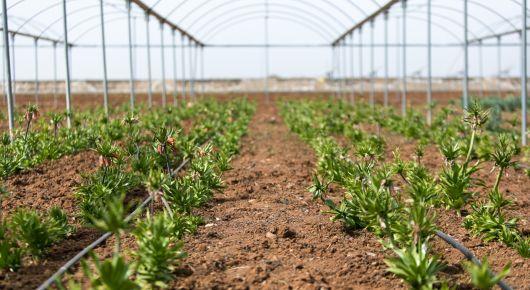FAO incubates indicators for global goals

FAO enters a new phase to assist implementation of the Sustainable Development Goals (SDG) in Europe and Central Asia through a workshop today in Ankara. Participants will validate an action plan that goes more in-depth on how to implement the 21 SDG indicators related to FAO’s mandate and their own data needs.
In the first phase, a series of awareness-raising workshops were conducted in Albania, Armenia, Azerbaijan, Georgia, Kazakhstan, Kyrgyzstan, Republic of Moldova, Tajikistan, and Turkey to help countries in nationalizing global goals and indicators.
“Now we are implementing the second phase – building the capacity of countries in producing the SDG indicators under FAO custodianship,” said Giorgi Kvinikadze, FAO statistician. “As many indicators are new and require considerable efforts from countries to produce them, we are facilitating the development of country action plans and roadmaps, which will guide both FAO and countries in additional capacity building.”
The objective of a roadmap is to create a point when countries are able to report on their nationalized goal indicators. Turkey is the first country where this roadmap is being developed, followed soon by Kyrgyzstan, Tajikistan, and Uzbekistan. FAO aims to involve other countries of the region in similar country-relevant roadmap development.
Counties are already receiving technical assistance on specific SDG indicators. As countries’ needs vary, so does the actual assistance. Armenia and Azerbaijan received support on monitoring food security and water indicators, while Armenia, Georgia, and Kazakhstan were provided with help on the productivity and income of small-scale food producers.
“FAO assistance is not limited to SDG indicators; the Organization currently provides significant support on implementation as well, and will continue to do so in the future,” said Raimund Jehle, FAO Regional Programme Leader. “Four years after the adoption of the goals, there is a great need to focus on concrete policy measures that can accelerate their achievement, and to address synergies and trade-offs among the goals and targets.”
In particular, FAO has been promoting and facilitating national SDG awareness-raising workshops in a number of countries in Europe and Central Asia, which were among the first events that brought together a wide range of relevant actors from all sectors in one country for a technical discussions on agriculture-related SDG targets. These covered governmental and non-governmental representatives from different levels, including local authorities, private sector, academia, and civil society, who discussed the importance of food and agriculture in achieving goals, assessed the role of different actors in the implementation, and identified gaps at policy level in terms of SDG alignment.
Strengthening dialogue with non-state actors is another key element, such as with the private sector in Albania and farmers’ association in Armenian and Georgia, while promoting SDG discussions among parliamentarians and at sub-national levels has ensured the engagement of local authorities in Azerbaijan.
FAO also utilizes other tools to realize a more sustainable and equitable future by 2030. In some countries, sectoral baseline reports were developed on agricultural and rural sectors to map coverage of relevant SDG in policies and statistical frameworks, such as the livestock sector’s contribution to achieve sustainable development in Ukraine.
Action plans to strengthen SDG implementation in the food and agriculture sector have also been produced in a number of countries. Last year in Republic of Moldova, for example, the action plan developed through FAO’s support was integrated into the updated National Strategy on Agriculture and Rural Development.
7 November 2019, Ankara, Turkey
